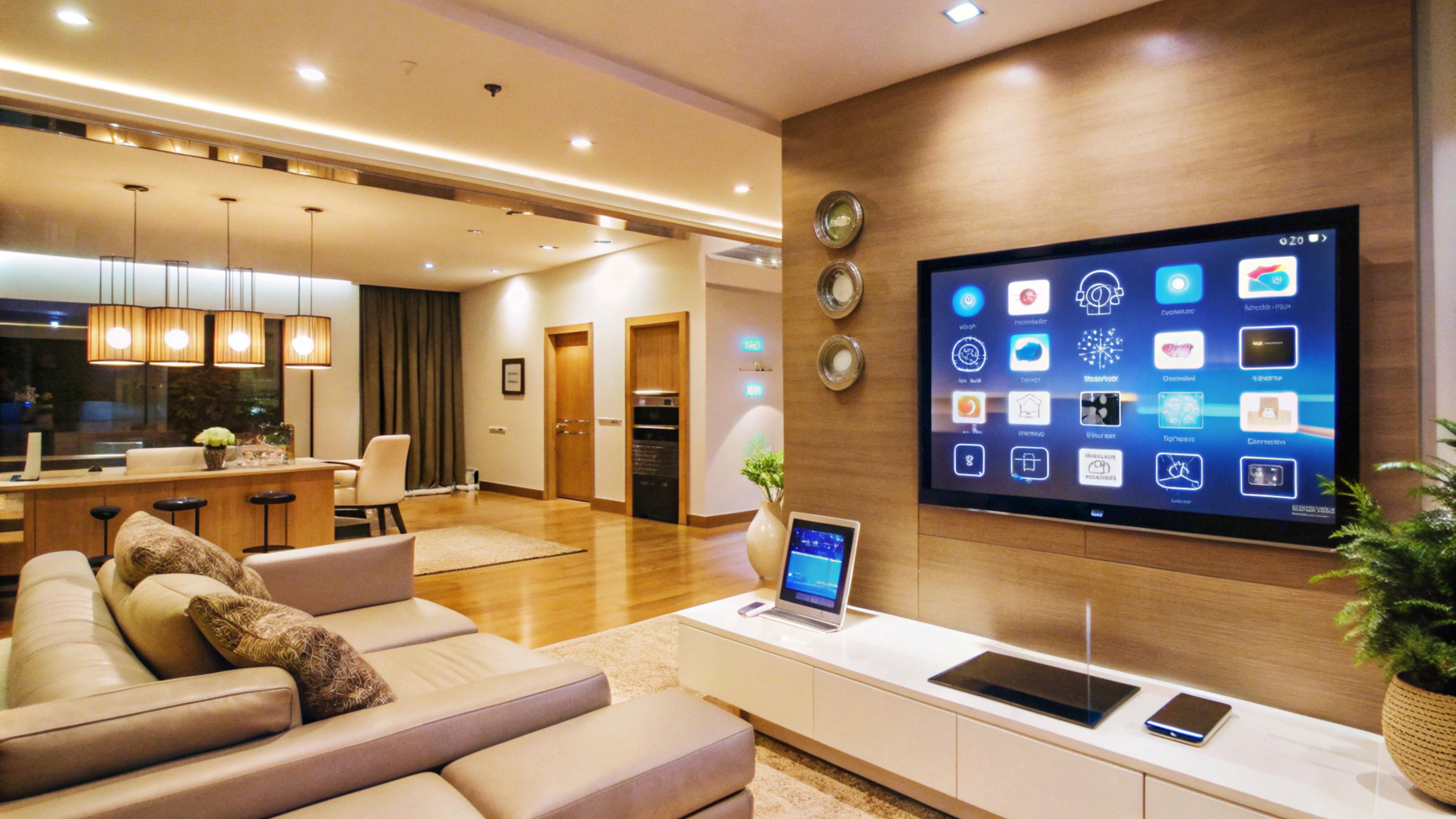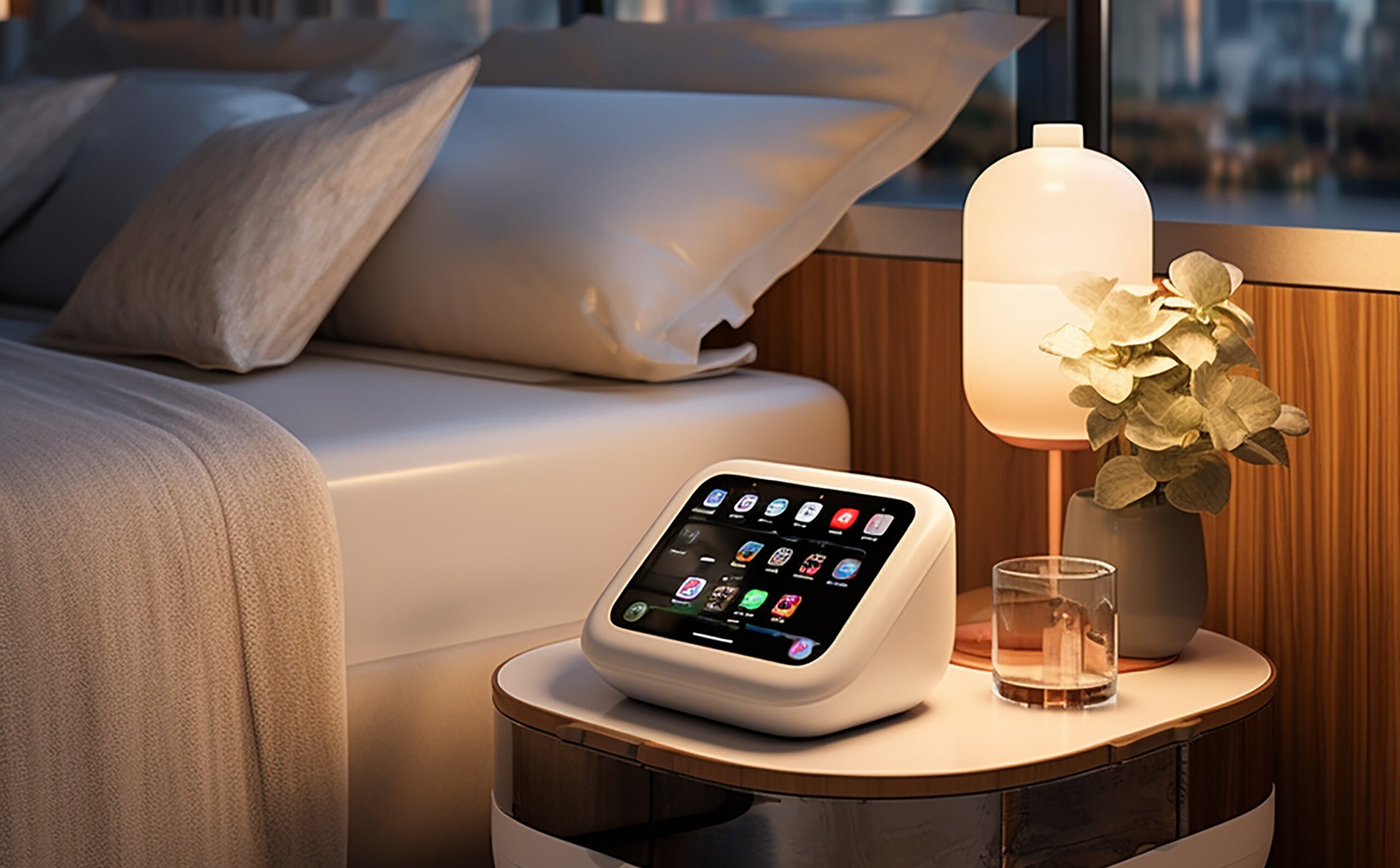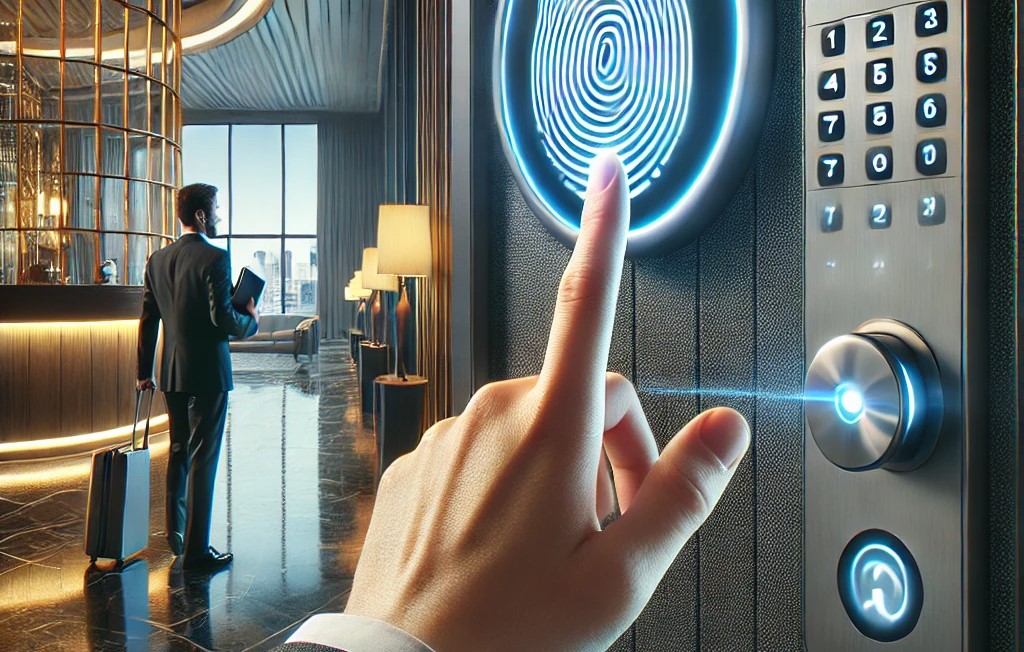
The Evolution of Hotel TVs: From Basic Entertainment to All-In-One Solution
Modern luxury hotel TVs have evolved beyond simply providing in-room entertainment to becoming comprehensive hubs for various guest services. From accessing hotel information to managing room controls, these interactive TVs are central to the guest experience, and contribute to personalization, convenience, and efficiency. For hoteliers, these advanced systems are a means to streamline operations, generate revenue, and stand out in an increasingly competitive industry.
A Holistic Modern Entertainment Platform
In the past, hotel TVs offered limited options: a set list of cable channels or, at most, a selection of on-demand movies. However, with advances in technology and the expectation of a seamless digital experience, modern hotel TVs now incorporate smart features that reflect what guests are used to at home. These ‘smart’ or ‘interactive’ TVs are equipped with internet connectivity, allowing access to streaming services like Netflix, YouTube and other local and international OTT platforms. Some systems even integrate music streaming and web radio apps, making it easy for guests to access their favourite content from the comfort of their hotel room.
But luxury hotel TVs are designed to do much more than entertain. They provide an interface that connects guests to a variety of hotel services directly through the screen. Guests can access restaurant menus, order room service, request housekeeping, and even control room settings like lighting and temperature without needing to leave their bed or pick up the phone.
A Sizable Potential for Personalization
One of the main draws of modern hotel TVs is their potential for guest personalization. By offering guests the option to tailor their room environment – like choosing lighting preferences to setting their wake-up alarms – hotels can offer a highly personalized experience that goes beyond traditional luxury. Some systems even allow guests to view their itineraries, access local attraction information, or find directions, adding value to their stay by reducing the need for separate digital devices.
In addition, interactive TVs are also becoming essential for multilingual support. Luxury hotels cater to international guests who may not be fluent in the local language. By integrating multiple language options, hotels ensure that guests from various cultural backgrounds can easily navigate services and requests, improving accessibility and satisfaction.
Streamlined Operations and a Tactical Marketing Platform
For hotel staff, interactive TV systems mean a more streamlined workflow. When guests make requests through the TV interface, they are routed to the relevant department through the hotel’s property management system. This reduces the need for time-consuming calls to the front desk, enabling faster response times and more efficient service. Additionally, requests are documented automatically, which helps management analyse service patterns and optimize staffing schedules accordingly.
Interactive TVs also assist in marketing the hotel’s brand and services. In-room dining, spa appointments, and local tour packages can all be advertised on the TV interface, often resulting in higher guest engagement than traditional brochures or flyers. Pop-up banners and background videos can further help showcase the brand and its other offerings.
According to a US-based technology company, hotels that use smart TVs for marketing, have seen an increase in service usage rates and, by extension, revenue. By embedding publicity materials in the TV interface, hotels are able to cross-sell services more subtly and effectively. MSR’s interactive guest experience TV offering for major Indian hospitality brands like IHCL and ITC Hotels are exemplary of this smart marketing feature.
Opportunities for Data Collection and Personalized Marketing
Modern hotel TV systems also offer invaluable data-gathering capabilities, which can be leveraged to enhance the guest experience further. By analysing user interactions with the TV, hoteliers can identify trends in guest preferences, such as popular room settings, frequently ordered room service items, or preferred types of content. This information can then be used to personalize marketing efforts, tailor recommendations, and adjust offers according to guest demographics.
In addition to improving guest satisfaction, these data-driven insights allow hotels to run more targeted loyalty programs, sending guests exclusive offers and perks that align with their past choices. This level of personalization not only drives repeat visits but also enhances brand loyalty in a competitive market.
Environmental Benefits through Energy-Efficient Controls
Interactive TVs, as a part of smart room technology, contribute to environmental sustainability in hotels. For instance, when connected to energy management systems, these TVs can automatically adjust energy usage according to occupancy. Guests may be prompted to set their room temperature preferences upon check-in, allowing the hotel to maintain efficient energy usage when rooms are vacant.
Furthermore, with the incorporation of digital concierge services, TV solutions help reduce paper waste from printed materials, such as menus and brochures. The International Energy Agency (IEA) estimates that smart room technology can lead to a 20-30% reduction in energy costs for hotels, which can also support their environmental goals.
A Competitive Advantage for Modern Hoteliers
As more travellers come to expect an immersive digital experience, luxury hotels that incorporate advanced TV systems gain a competitive advantage. The Covid-19 pandemic accelerated the demand for contactless interactions, with many guests now expecting a minimal-touch experience. Interactive TVs offer a valuable solution by allowing guests to check out, settle bills, or make requests without needing face-to-face interactions with hotel staff. This has led the integration of interactive TV systems to become a priority for forward-thinking hotel brands that cater to modern preferences while optimizing operations.
Conclusion: The Future of Interactive Hotel TVs
Interactive smart TVs represent a significant shift in the way hotels cater to their guests. By combining entertainment with room service management and data-driven personalization, these TVs are becoming the cornerstone of the luxury hotel experience. They enhance the guest journey, streamline hotel operations, provide valuable data insights, and align with sustainability goals.
In an industry that is rapidly evolving, interactive TV systems are proving to be indispensable assets, setting a new standard for convenience, personalization, and innovation in the hospitality sector. For luxury hotels, investing in these systems is no longer just an option – it is becoming a necessity to meet and exceed the expectations of the modern traveller.
BACK TO ALL BLOGS

